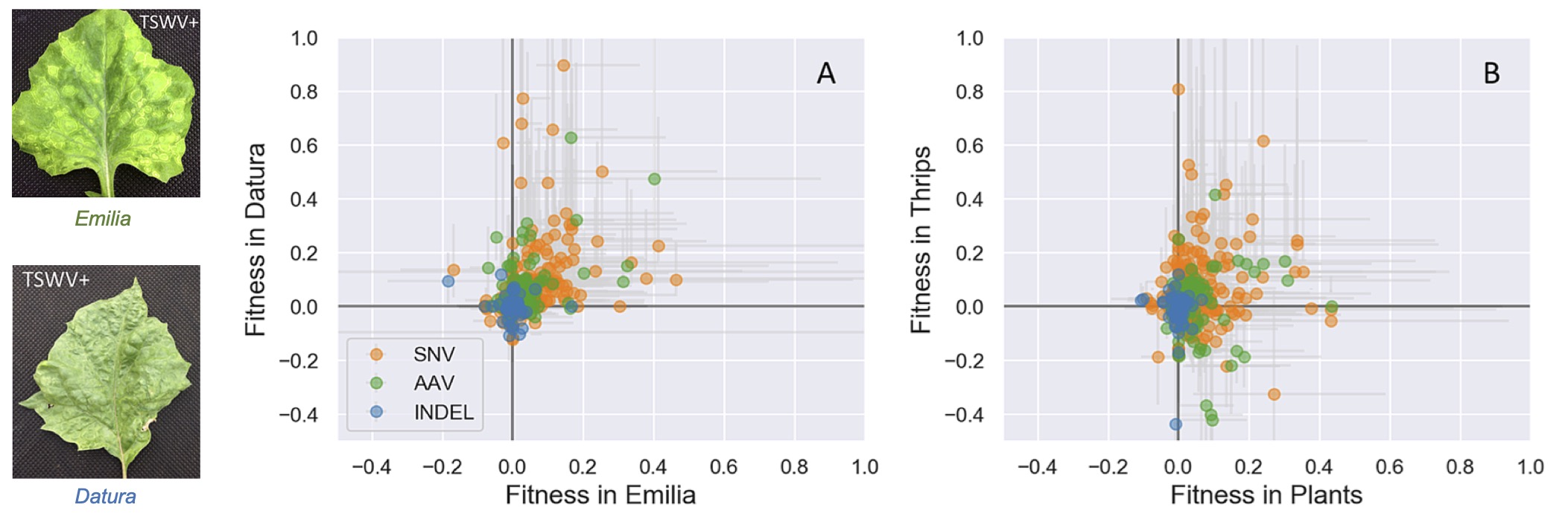A postdoctoral research position is available in the Phylodynamics Research Group led by David Rasmussen in the Department of Entomology and Plant Pathology and the Bioinformatics Research Center at NC State University. The postdoc will participate in a NSF-funded project exploring how fitness tradeoffs limit viral host range as well as how generalist viruses evolve to resolve these tradeoffs. In particular, the postdoc will help connect theory to data by developing new phylodynamic methods for quantifying pathogen fitness between different host environments. These newly developed methods will then be applied to multi-host viral pathogens in order to empirically measure fitness differences and movement between alternative hosts.
While the intended project is largely computational, the postdoc may combine method development with experimental work on the super-generalist plant virus tomato spotted wilt virus (TSWV), which our lab uses as a model to study viral adaptation to multiple hosts (see here). This may include assisting in field surveys of TSWV genomic diversity and quantifying the fitness of individual viral genotypes on a panel of crops and native plants. By combining the newly developed phylodynamic methods with empirical measures of viral fitness on different hosts, we will be able explore how fitness tradeoffs evolve over time and shape the host range of an extraordinary RNA virus.

The successful applicant can also build their mentoring skills by co-supervising an undergraduate led meta-analysis aimed at synthesizing current literature on how fitness tradeoffs shape viral host range more broadly in plant, animal and human viruses. Applicants interested in gaining teaching experience may also help develop educational materials for teaching genomic epidemiology and phylodynamics in a new series of international workshops.
Applicants must hold a PhD in biology or a related field. Candidates with strong programming and bioinformatics skills will be given the highest consideration. Previous molecular and virology lab experience are highly sought, but not essential. Most importantly, the candidate must possess strong problem-solving skills and a record of self-directed, innovative research.
Initial appointment is for one year, but position will be renewable for up to two years. Start date would ideally be Summer 2022.
To apply: please apply here including a CV, a brief cover letter describing research interests, a writing sample (e.g. first author publication) , and the contact info for two references. Submission of a code sample written by the applicant is also strongly encouraged. Application deadline: April 1st, 2022.
